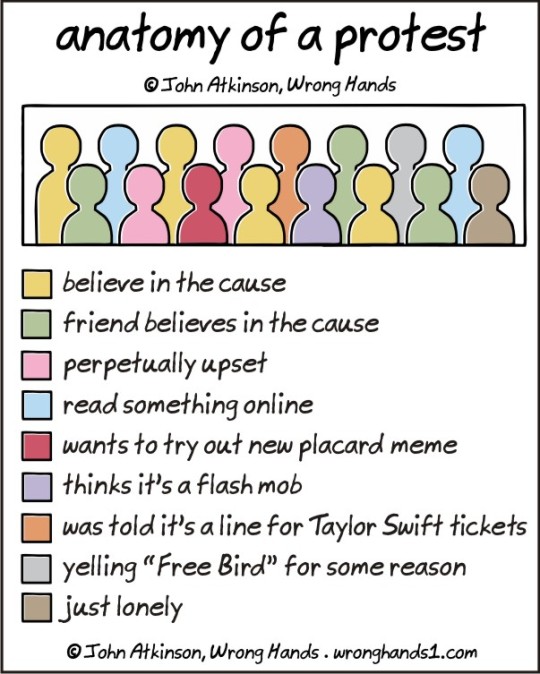#Lifestyle (sociology)
Explore tagged Tumblr posts
Text
Speaking of the social context of P&P and Austen in general, and also just literature of that era, I'm always interested in how things like precisely formulated hierarchies of precedence and tables of ranked social classes interact with the more complex and nuanced details of class-based status and consequence on a pragmatic day-to-day level. I remembered reading a social historian discussing the pragmatics of class wrt eighteenth-century English life many years ago and finally tracked down the source:
"In spite of the number of people who got their living from manufacture or trade, fundamentally it was a society in which the ownership of land alone conveyed social prestige and full political rights. ... The apex of this society was the nobility. In the eyes of the Law only members of the House of Lords, the peerage in the strictest use of the word, were a class apart, enjoying special privileges and composing one of the estates of the realm. Their families were commoners: even the eldest sons of peers could sit in the House of Commons. It was therefore in the social rather than in the legal sense of the word that English society was a class society. Before the law all English people except the peers were in theory equal. Legal concept and social practice were, however, very different. When men spoke of the nobility, they meant the sons and daughters, the brothers and sisters, the uncles and aunts and cousins of the peers. They were an extremely influential and wealthy group.
"The peers and their near relations almost monopolized high political office. From these great families came the wealthiest Church dignitaries, the higher ranks in the army and navy. Many of them found a career in law; some even did not disdain the money to be made in trade. What gave this class its particular importance in the political life of the day was the way in which it was organized on a basis of family and connection ... in eighteenth-century politics men rarely acted as isolated individuals. A man came into Parliament supported by his friends and relations who expected, in return for this support, that he would further their interests to the extent of his parliamentary influence.
"Next in both political and social importance came the gentry. Again it is not easy to define exactly who were covered by this term. The Law knew nothing of gentle birth but Society recognized it. Like the nobility this group too was as a class closely connected with land. Indeed, the border line between the two classes is at times almost impossible to define ... Often these men are described as the squirearchy, this term being used to cover the major landowning families in every county who were not connected by birth with the aristocracy. Between them and the local nobility there was often considerable jealousy. The country gentleman considered himself well qualified to manage the affairs of his county without aristocratic interference.
"...The next great layer in society is perhaps best described the contemporary term 'the Middling Sort'. As with all eighteenth-century groups it is difficult to draw a clear line of demarcation between them and their social superiors and inferiors. No economic line is possible, for a man with no pretensions to gentility might well be more prosperous than many a small squire. There was even on the fringe between the two classes some overlapping of activities ... The ambitious upstart who bought an estate and spent his income as a gentleman, might be either cold-shouldered by his better-born neighbours or treated by them with a certain contemptuous politeness. If however his daughters were presentable and well dowered, and if his sons received the education considered suitable for gentlemen, the next generation would see the obliteration of whatever distinction still remained. The solid mass of the middling sort had however no such aspirations, or considered them beyond their reach.
"...This term [the poor] was widely used to designate the great mass of the manual workers. Within their ranks differences of income and of outlook were as varied as those that characterized the middle class. Once again the line of demarcation is hard to draw..."
—Dorothy Marshall, Eighteenth Century England (29-34)
(There's plenty more interesting information in the full chapter, especially regarding "the poor," and the chapter itself is contracted from a lengthier version published earlier.)
#anghraine babbles#long post#dorothy marshall#eighteenth century england#austen blogging#eighteenth century blogging#also thinking about this in terms of elizabeth spending so much of pride and prejudice /acutely/ conscious of a social divide#between her family (as in the bennets and mr collins) and darcy's status - so her claim to equality with him w/ lady catherine is- well#not a dry sociological statement but an important character moment for elizabeth (and lady catherine!)#realistically darcy's lifestyle politics and interests ARE far more allied with ppl like the fitzwilliams than ppl like the bennets#and elizabeth is not at all ignorant of that - it's why she initially thinks he's too much of a great man to be interested in her#even before she knows of his close connections to literal nobility#and that is probably the more ... normative? understanding of their respective positions.#so her later claim to equality with him - in a way that forces ly c to acknowledge elizabeth's own status - is not a simple neutral truth#but weighted in a way that's important thematically and for elizabeth's development - something that the pure sociological take misses imo#anghraine's meta#austen fanwank#sorta
160 notes
·
View notes
Text

#webcomic#wronghands#funny#humor#john atkinson#infographic#anatomy#protest#gathering#politics#sociology#demonstration#lifestyle
420 notes
·
View notes
Text

#travel#cameras#sociology#movies#libraries#culture#books#health fitness#books and libraries#motivation#photographers on tumblr#home lifestyle#landscape#cute#photography#nature#art#beauty#design#inspiration#alternative#scenery#aesthetic#paradise#exlore#cottagecore#adventure#traveling
86 notes
·
View notes
Text
Don't let the opportunity to express your love pass you by."
#frases#poetry#love poem#romance quotes#Tumblarians#Sociology#prose#spilled thoughts#motivation#Books and libraries#Libraries#books libraries#home lifestyle#Health fitness#Movies#lit#literature#poem#poetas en español
224 notes
·
View notes
Text
Why Should Senior Citizens Perform Balance Exercises?
If we want to say, why should senior citizens perform balance exercises then we must say that Senior citizens should perform balance exercises to reduce the risk of falls and maintain their independence. Consistent practice can enhance coordination and stability.
Read More
#literature#writers#tumblarians#movies#travel#museums#architecture#culture#education#design#history#health fitness#books libraries#home lifestyle#books and libraries#sociology#photography#student#quoteoftheday#art#meirl#funny#memes#memedaddy#lez#relatable#twitter#tweets#tweet#meme
7 notes
·
View notes
Text
New Article - Conceptualising Grey Spaces in Skateboarding
This was one of those articles that just flowed. I was asked to do a talk for the SSHRED seminar series which is a exciting initiative working on issues of the environment and skateboarding. I thought I would take the opportunity to clarify the grey spaces concept I had generated in a previous paper 'Skateboarding in the Anthropocene' and then it turned into a mission statement about theory and method in skateboard studies. Here is the link to the article...
The article is published in the International Review for the Sociology of Sport and is free to access.
You can also check out the video of the seminar that was the catalyst for the paper below.
youtube
#skateboarding#grey spaces#skateboard studies#sociology of skateboarding#anthropology of skateboarding#skateboard academia#lifestyle sports#Youtube
4 notes
·
View notes
Video
youtube
🌻 How To Live Your Best Ace Life! 🌻♠| Capitalism Induced Generational Trauma @BlackWomanVibes Ep 17
As an Ace (Asexual) life outside of cishet patriarchal normativity often is lonely. Even as part of the LGBTQIA+ community, we are often relegated as a mystery due to the lack of media/social representation of Asexuals and being replaced as a + sign after the Q in LGBTQ(+). Amatonormativity may rule the day, but we still exist as the alternative and that’s beautiful. 💜🖤🩶🤍 Like the content? Support the content creator Cashapp: $BlackWomanVibes Socials: BlackWomanVibes 🔮 🧿
#youtube#asexual#lifestyle vlog#asexuality#spirituality#blackwomanvibes#expansion#empress#ascension#healing#spiritual healing#spiritual journey#politics#mental health#capitalism#humanity#community#communism#anarchy#sociology#Queer#queer platonic#sapphic#lgbtqiaplus#generational trauma#demisexual#jehovah witnesses#housing justice#compulsory sexuality#allosexual
3 notes
·
View notes
Text
Fuck the world with their little meddling shits, with their stupid compulsive behaviours, those filthy eyes of judgement, I'm God on my own. No need for preaching or eternal praise, the reflection of my eyes tells me I'm more than flesh and bones.
Succumb into the social norm, your soul hunger for the crumbles of existence, be supreme and mighty, be as you once pictured yourself when young. Respect your own view of life and act on it.
2 notes
·
View notes
Text
Got no plans for New Year's Eve? No worries, this blog will give you precise ways in which you can make your last day of 2022 most memorable, and that too by being in your home.
https://ideologicalbliss.com/10-best-things-to-do-on-new-years-eve-at-your-home/
#new year#philosophy#self acceptation#self care#blogging#contentwriting#contentwriter#sociology growth motivation self help enlightenment healthy lifestyle career life hacks life goals growth tips power self love psychology
10 notes
·
View notes
Text
Bibby Stockholm: My View On The British Governments 'Asylum Seeker Barge' Plan…
The definition of an asylum seeker, as per Amnesty Internationals website is; ‘A person who has left their country and is seeking protection from persecution and serious human rights violations in another country, but who hasn’t yet been legally recognised as a refugee and is waiting to receive a decision on their asylum claim.’ Seeking asylum is a human right, something which the UK government…
View On WordPress
#hope#inspiration#inspiring#lifestyle#mental health#mental health awareness#mental health recovery#motivation#politics#recovery#Sociology#suicide prevention
3 notes
·
View notes
Text
Understanding Emotional Styles: The Building Blocks of Emotion
Emotional states are brief reactions to experiences, while moods last longer and emotional traits characterize individuals over time.
The smallest, most fleeting unit of emotion is an emotional state. Typically lasting only a few seconds, it tends to be triggered by an experience the spike of joy you feel at the macaroni collage your child made you for Mother’s Day, the sense of accomplishment you feel upon finishing a big project at work, the anger you feel over having to work all three days of a holiday week-end, the sadness…
0 notes
Text
সুখী গৃহকোণ আর সমাজ ?
মানিয়ে নেওয়ার ক্ষমতা আমাদের ভালোই, তার জানান সমাজ বার বার দিচ্ছে, মানুষ অনেক বছর ধরে পরিশ্রম করে যোগ্যতা অর্জন করে, পরিশ্রম করে, করে রোজগার, সঞ্চিত অর্থগুলো শুধু অর্থ নয়, প্রত্যেকের জীবনের অনেকগুলো বছরের আত্মত্যাগের খতিয়ান
চলো এবার উল্টো দিক দেখি,পারিবারিক প্রেক্ষাপট আদৌ বিভাজিত নাকি?রোগ কি খুব ছড়িয়েছে নাকি উলটপুরাণ রয়েছে অস্তিত্বে,বোধগম্যতা হ্রাস পেয়েছে নাকি নাক উঁচুর প্রতি আস্থা, পূর্ণতা দিচ্ছে, উল্টো গল্প পড়ছে চাপা, অবলা কত আত্মত্যাগের গল্প,মানিয়ে গুছিয়ে চলছে বেশ ভালোই, তোয়াক্কা নেই সমাজে কে কি বললো,সমাজমাধ্যমে ওদেরও ভালো ছবি, অন্ধকার সুরক্ষিত,প্রকাশ্যে ওদের সাহস দেখাতে হয় না, মনে সব পরীক্ষিত, নিরাপত্তাহীনতা…
#abhaya#atul bangalore case#contrast#delhi nirbhaya case#indian judicial system#justice#justice is due#justice is pending#kolkata#kolkata abhaya case#kolkata nirbhaya case#lifestyle#need change#need justice#need speed#nirbhaya#raktim chakraborty on justice is due#raktim chakraborty poetry#raktimchakraborty#society#Sociology#thinking#thought of the day
0 notes
Text
Started the human development module of my course and I am enjoying it a lot more than the legal side of the course m. Learning about different theories such as social learning theory & sociocultural theory of cognitive development is right up my street. It also helps I’ve studied this briefly during college and undergrad!
25.11.2024
#pyschology#theories#sociologist#sociology#social work#human development#study#studying#students#studyspo#study inspiration#learning#academia#postgraduate#post grad life#postgraduate course#higher education#education#career woman#careers#profession#piaget#books#gender dynamics#november#goals#lifestyle#life goals
1 note
·
View note
Text
“Transformative Junk” Project with AHJN: Repurposed Canvas Hearts
This month, I am hiking to fundraise for the National Parks Conservation Association (NPCA)! Support the journey here:Through Venmo: https://account.venmo.com/u/twiichiiThrough NPCA Fundraiser: https://give.npca.org/fundraiser/5852280 Hi all, I’ve been feeling very connected with my community. Very grateful to contribute co-teachings through the “Transformative Junk” Project with Arts for…
#Art#art therapist#art therapy#counselor#cultural#culture#garden#healing#Health#healthy#hike#hiker#hiking#hiking art therapist#history#international#justice#lifestyle#Los Angeles#mental health#natural#pass#passes#peaks#permit#public transportation#restorative justice#river#sociologist#sociology
0 notes
Text

The ups and downs of life not only test our strength, but also forge our resilience and determine our personal growth.
Arrrmanda Hackerman
#literature#poetas en español#culture#art#education#words#spilled thoughts#lit#prose#quoteoftheday#sociology#books and libraries#books libraries#health fitness#home lifestyle#student#history#television#movies#writers
103 notes
·
View notes
Text
Strength Training Simply Strong – Unleash Peak Fitness
Strength training simply strong refers to building muscle and improving strength through exercises. This type of training focuses on resistance to enhance overall fitness.
Learn More
#literature#writers#tumblarians#movies#travel#museums#architecture#culture#education#design#history#health fitness#books libraries#home lifestyle#books and libraries#sociology#photography#student#quoteoftheday#art#relatable#twitter#tweets#tweet#meme#memes#funny#lol#humor#meirl
3 notes
·
View notes